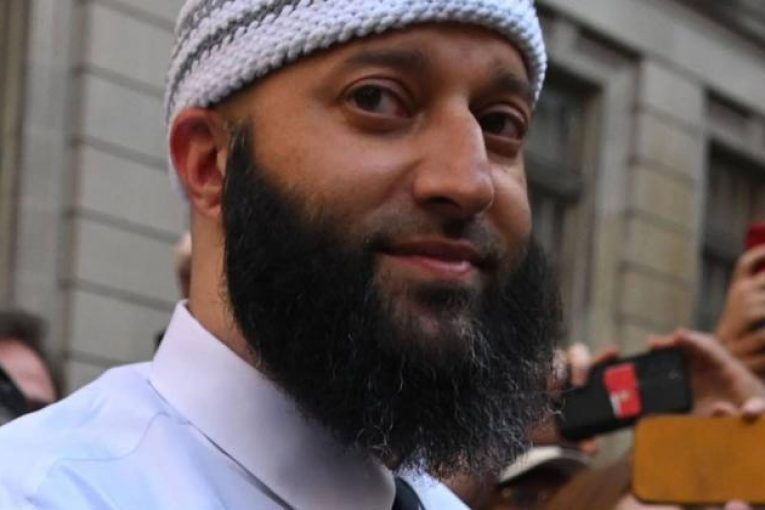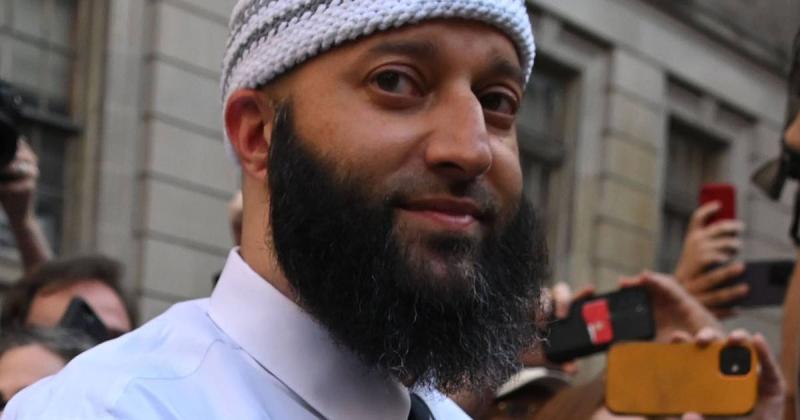Guest Commentary: How many more Adnan Syeds are in the justice system with no journalists to advocate for them?


By William Hughes
The news that a judge in Baltimore overturned Adnan Syed’s murder conviction Monday should comfort the afflicted who are caught up in the strife of wrongful conviction and afflict the comfortable (and tainted) members of the law enforcement community who either made — or merely allowed — the under-supported conviction to happen in the first place. As we have come to know all too well in recent years, the latter, predominantly white group has held a demonstrable and destructive sway over incarcerated Americans, who are vastly non-white.
I am sure that the Syed family and the journalist Sarah Koenig, whose “Serial” podcast detailing Syed’s case undoubtedly set the recent ruling in motion, are still sorting through the rush of emotions and uncertainties that ensue when a journalist works for years on a case and watches a man walk out of prison. The families of the victim or  victims likely will direct their pain at them, rather than the police or prosecutors who botched the case. And the system as a whole will take a long view and a back seat, while it grinds away long after the headlines die down. Syed is not yet “exonerated” or absolutely free: He is out of prison but under home arrest while Maryland officials decide whether to retry him. His case will likely fade from public memory after the appeals and civil suit stories make the rounds, should any appear.
victims likely will direct their pain at them, rather than the police or prosecutors who botched the case. And the system as a whole will take a long view and a back seat, while it grinds away long after the headlines die down. Syed is not yet “exonerated” or absolutely free: He is out of prison but under home arrest while Maryland officials decide whether to retry him. His case will likely fade from public memory after the appeals and civil suit stories make the rounds, should any appear.
I know all this because I spent nearly 10 years working as a journalist to help free a single man named Johnny Hincapie, a wrongfully convicted New York City teenager who served over 25 years for a murder he had nothing to do with. And the sad reality is that there are not enough journalists out there to spend the decade or so years it seems to take to prove a single person innocent of a crime of which they were wrongfully convicted. And very few stories ever get printed or aired about the aftermath of people’s lives once the freedom walk outside the courtroom fervor dies down.
I also work as a volunteer investigator and board member for the Jeffrey Deskovic Foundation for Justice. Jeffrey spent nearly 16 years in prison, starting when he was just 17, for a rape and murder he did not commit. Thousands of people in this country spend their lives pleading their innocence to anyone who will listen, and while it is obvious many if not most of them are lying, imagine yourself, if you can, in the position of one who is not.
Syed’s momentary victory is even more poignant because even though the U.S. Supreme Court refused to hear his case, honest men and women in the state system recognized, after 23 years, that the right to a fair trial had been denied to one of their fellow citizens.
Just as the videos of the murders of George Floyd and Ahmaud Arbery aroused some semblance of righteous indignation in people across the planet, so too should every story involving wrongful conviction.
Lost in much of the hype about wrongful conviction is the simple fact that whoever got away with the crime is likely to feel emboldened to victimize someone else.
The fact that the victim Hae Min Lee’s brother Young Lee told the court that he felt blindsided by the prosecution’s dropping of the case amplifies the damage done to survivors needing closure.
Street protests and online “slactivism” only go so far. These things raise the temperature of public discourse in fits and starts. But real reform requires patient and persistent demand upon our elected officials to hold police, prosecutors and, in some cases, judges responsible for their complicity in willfully or just sort-of knowingly putting the wrong people in prison and letting other dangerous people go free.
Without legislative reform targeted at preventing future abuses, the cycle will persist. Everyone pays but the guilty. The corrupt police, prosecutors and judges collect pensions; the taxpayers dole out for lawsuit settlements. And the ones who got away continue to lurk among us.
William Hughes (whughes@york.cuny.edu) is the director of the Journalism Program at CUNY (City University of New York) York College. Originally published in the Baltimore Sun.



